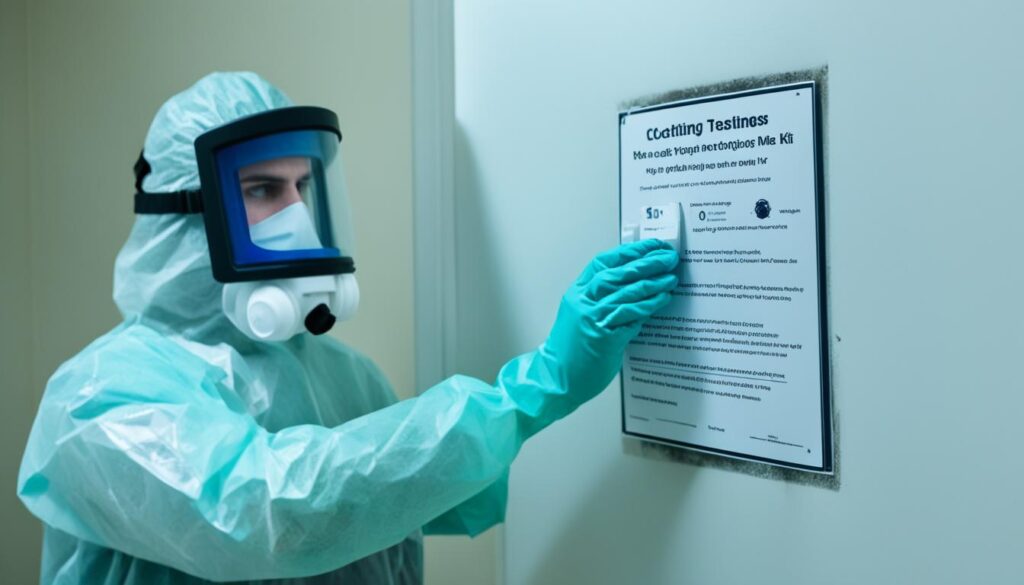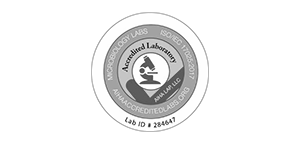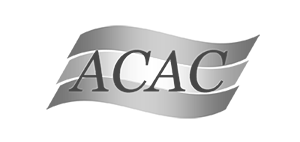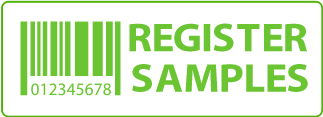
Are home mold test kits accurate?
Mold is a common issue that many homeowners face, and it’s important to accurately identify and address the problem to ensure the health and safety of those living in the affected space. But how reliable are home mold test kits in providing accurate results?
According to a recent study, over 80% of home mold test kits produce inaccurate results, potentially leading homeowners to believe their homes are mold-free when they are actually at risk. This surprising statistic highlights the need to thoroughly evaluate the effectiveness and accuracy of these DIY mold testing kits. However, My Mold Detective provides one of the most accurate home mold test kits and mold detectors on the market. It a great way to get an initial assessment before you decide on calling a professional mold remediation company. This way if the test shows signs of mold you at least know the next steps.
In this article, we will delve into the effectiveness of home mold testing kits, explore the factors that may influence their accuracy, compare them to professional inspections, and provide expert recommendations for accurate mold identification. Let’s separate fact from fiction and ensure you have the information you need to make informed decisions regarding mold detection in your home.
Key Takeaways:
- Over 80% of home mold test kits produce inaccurate results. (but My Mold Detective provides the most accurate results)
- Accurate identification and addressing of mold issues are crucial for the health and safety of homeowners.
- Thorough evaluation of mold testing kits is necessary to make informed decisions.
- Expert recommendations and professional inspections can provide more accurate mold identification.
- Mold testing kits should not be solely relied upon for comprehensive mold detection.
Evaluating the Effectiveness of Home Mold Testing Kits
When it comes to addressing mold issues in your home, using a reliable mold testing kit like My Mold Detective is crucial. In this section, we will delve into the effectiveness of home mold testing kits, discussing their common shortcomings, factors that influence their accuracy, and comparing them to professional inspections.
Common Shortcomings of Mold Detection Kit Precision
While home mold testing kits offer convenience and affordability, they do have certain limitations. One common shortcoming is their inability to accurately measure airborne mold spores. These kits primarily focus on surface testing, providing a snapshot of mold presence at a specific point in time. Furthermore, most kits cannot differentiate between different types of mold, which is essential for determining the potential health risks.
Factors Influencing the Performance of DIY Mold Test Kit Accuracy
Several factors can influence the accuracy of DIY mold test kits. Environmental conditions, such as temperature and humidity levels, can impact the growth and presence of mold, potentially leading to false negatives or positives. Additionally, user error, such as improperly following instructions or mishandling samples, can affect the reliability of the results obtained.
Professional Inspection vs. At-Home Mold Test Reliability
While home mold testing kits are a convenient option, they may not always provide the same level of reliability as professional inspections. Trained experts have the knowledge, experience, and specialized equipment required to conduct thorough mold assessments. Professional inspections often involve a combination of visual inspections, airborne spore testing, and lab analysis, providing a more comprehensive evaluation of the mold situation.
When deciding between a home mold testing kit and a professional inspection, it’s essential to consider the specific circumstances. If you’re dealing with recurring or severe mold issues, or if you have concerns about potential health risks, it’s advisable to seek the expertise of a professional.
Understanding Mold Testing Kit Effectiveness
In this section, we will delve deeper into the effectiveness of mold testing kits. Mold testing kits have gained popularity as a convenient solution for homeowners to detect mold in their homes. However, it is crucial to understand the limitations and accuracy of these kits before relying solely on their results.
Laboratory Methods Versus Home Kits
When it comes to mold testing, professionals typically use laboratory methods that involve comprehensive analysis and identification of mold spores. These methods utilize specialized equipment and trained experts who can accurately detect and quantify the presence of mold in a given sample.
On the other hand, home mold kits are designed for DIY use and often provide quick and easy testing solutions. These kits usually include test swabs, petri dishes, or adhesive tape to collect mold samples. The collected samples are then sent to a laboratory for analysis.
It’s important to note that while home mold kits can provide some insights into the presence of mold, their accuracy may vary. The methods employed by home kits may not be as reliable or thorough as those used in professional laboratory analysis.
Importance of Professional Analysis in Mold Testing
Professional mold testing and analysis play a vital role in accurately identifying and assessing mold contamination. Trained professionals have the knowledge and experience to conduct thorough inspections, identify the type of mold present, and provide an accurate assessment of the mold growth and its potential health risks.
Professional analysis provides a comprehensive understanding of the mold situation, enabling homeowners to take appropriate action. This analysis can also help identify the underlying cause of the mold growth, such as a leak or high humidity, allowing for effective remediation strategies.
Accuracy of Household Mold Test Kits: Professionals Weigh In
Experts in the field have differing opinions regarding the accuracy of household mold test kits. Some professionals believe that these kits can be a useful initial step in identifying potential mold problems. They are particularly helpful in situations where visible mold is present. However, professionals also caution that the results obtained from home kits should be interpreted with caution and validated by a qualified mold inspector or laboratory analysis.
It’s essential to understand that mold test kits may have limitations and may not always provide a complete picture of the mold contamination in a home. Factors such as sampling techniques, user error, and difficulties in interpreting results can affect the accuracy of these tests. Therefore, it is recommended to consult with a mold remediation specialist or a qualified professional for a more accurate assessment of mold presence.
Critical Issues with DIY Mold Test Kits
When it comes to DIY mold test kits, there are several critical issues that homeowners should be aware of. While these kits may seem like a convenient and cost-effective solution for detecting mold, they come with their own set of limitations and risks.
Lack of Expiration Dates: One of the major concerns with DIY mold test kits is the lack of expiration dates. Without an expiration date, it becomes challenging to determine the reliability and accuracy of the test results. Mold test kits that have expired may provide inaccurate or unreliable results, leading to potential misinterpretation and incorrect identification of mold presence.
Potential Inaccuracies in Lab Results: Another critical issue with DIY mold test kits is the possibility of inaccuracies in the lab results. These kits typically require the user to collect a sample and send it to a lab for analysis. However, the quality control and accuracy of these labs may vary, which can impact the reliability of the results. Inaccurate lab results can lead to incorrect conclusions or a false sense of security.
Risks Associated with Shipping and Handling: DIY mold test kits involve shipping samples to a lab for analysis, which introduces the potential for mishandling and contamination during transit. Improper handling of samples can compromise the integrity of the results and render them invalid. Additionally, delays or mishaps during shipping can affect the quality and condition of the sample, further impacting the accuracy of the analysis.
False Advertising: Some DIY mold test kits may make exaggerated claims or false promises regarding their accuracy and effectiveness. Homeowners should be cautious of such marketing tactics and consider the credibility and reputation of the kit before making a purchase. It is important to rely on objective information and expert opinions rather than solely relying on misleading advertisements.
Lack of Certification or Accreditation: Unlike professional mold inspections, DIY mold test kits are not subject to certification or accreditation processes. This means that there are no standardized guidelines or quality assurance measures in place to ensure their accuracy and reliability. Without these certifications, it becomes difficult for homeowners to gauge the credibility of the kit and the accuracy of the results.
Absence of Control Samples: Control samples are an essential component of mold testing as they help establish a baseline for comparison. Unfortunately, most DIY mold test kits do not include control samples, making it challenging to accurately interpret the results. The absence of control samples limits the reliability and comprehensiveness of the testing process, potentially leading to misidentification or incomplete analysis.
Inadequate for Comprehensive Inspections: While DIY mold test kits can provide a preliminary indication of mold presence, they are inadequate for comprehensive mold inspections. Mold inspections require a combination of visual assessments, air sampling, and surface sampling techniques, which cannot be replicated by a single DIY kit. Without a comprehensive inspection, homeowners may miss underlying mold issues or fail to assess the true extent of the problem.
It is essential for homeowners to understand these critical issues when considering the use of DIY mold test kits. While these kits may offer convenience, they should not be solely relied upon for accurate mold identification. Seeking professional assistance from trained experts is recommended for comprehensive mold inspections and reliable results.
The Accuracy of Home Mold Test Kits in Detection
When it comes to detecting mold in your home, many people turn to home mold test kits for a convenient and affordable solution. However, it is crucial to evaluate the accuracy and reliability of these DIY kits before relying solely on their results. In this section, we will delve into the accuracy of home mold test kits and examine the claims made by manufacturers regarding their effectiveness.
Contesting Claims of Best Mold Test Kit Reviews
Manufacturers often make bold claims about the effectiveness of their mold test kits, touting them as the best on the market. However, it is essential to approach these claims with a critical eye. While some kits may provide accurate results, others may fall short in terms of precision and reliability. It is crucial to consider factors such as the method employed by the kit, the types of mold it can detect, and the expertise of the user.
To contest the claims of best mold test kit reviews, it is important to examine independent evaluations and customer feedback. Look for unbiased sources that provide comprehensive assessments of multiple mold test kits. By considering a variety of reviews and opinions, you can gain a more accurate understanding of the pros and cons of different kits.
Misconceptions About At-Home Mold Test Reliability
There are several misconceptions surrounding the reliability of at-home mold tests. One common misconception is that these kits can accurately identify all types of mold present in the home. While some kits may provide limited information about the presence of specific mold strains, they may not be able to detect other types. Additionally, at-home tests may have limitations in detecting airborne mold spores, which can be a crucial factor in assessing the extent of mold contamination.
Another common misconception is that at-home mold tests can replace the need for professional inspections. While these tests can provide initial insights into the presence of mold, they may not be sufficient in determining the severity and extent of the issue. Professional inspections conducted by experienced mold experts are often necessary for a comprehensive assessment and effective remediation plan.
Pros and Cons: Mold Test Kit Comparison from Industry Experts
To help you make an informed decision, we have compiled a comprehensive comparison of different mold test kits based on insights from industry experts. This comparison takes into account factors such as accuracy, ease of use, detection methods, and overall reliability. By reviewing this comparison, you can gain valuable insights into the strengths and weaknesses of various mold test kits, assisting you in selecting the most suitable option for your needs.
In summary, while home mold test kits can provide a convenient initial assessment of mold presence, it is important to approach their accuracy and reliability with caution. Contesting claims made by manufacturers, dispelling misconceptions about at-home mold test reliability, and reviewing expert comparisons can help you make an informed decision when choosing a mold test kit for your home. Rest assured My Mold Detective use the same mold testing technology as Indoor Air Quality (IAQ) Professionals and adhere to industry Testing standards. Air sampling with a detailed report check out our manufacturer’s instructions.
Expert Recommendations for Accurate Mold Identification
In order to accurately identify mold and address any potential issues, it is important to seek expert recommendations and guidance. While home mold test kits can be a convenient option, there are situations where it is advisable to skip the kit and opt for a professional mold inspection instead.
When to Skip the Kit and Opt for Professional Mold Inspection
While home mold test kits may provide some initial insight, there are certain scenarios where it is recommended to consult a professional for a thorough mold inspection:
- If you suspect the presence of hidden mold or mold growth in inaccessible areas such as behind walls or under flooring.
- If there is a history of water damage or moisture issues in your home that could contribute to mold growth.
- If you or someone in your household is experiencing persistent health symptoms that could be related to mold exposure.
- If you require documentation or certification of mold presence for legal, insurance, or real estate purposes.
By opting for a professional mold inspection, you can benefit from their expertise in accurately identifying mold, assessing its severity, and providing appropriate remediation recommendations.
Understanding Visual Inspections and Lab-Based Mold Testing
Visual inspections play a crucial role in mold identification. Trained professionals can visually assess the presence of mold growth, identify potential sources of moisture, and determine the extent of the issue. This visual assessment is often the first step in the mold inspection process.
In addition to visual inspections, lab-based mold testing can provide further insights into the types and concentrations of mold present in your home. This testing involves collecting mold samples which are then analyzed in a laboratory setting. The results obtained from lab-based mold testing can help determine the severity of the mold problem and guide appropriate remediation strategies.
Making Sense of Results: Are Home Mold Test Kits Accurate?
When using home mold test kits, it is important to understand how to interpret and make sense of the results obtained. While these kits can provide an indication of mold presence, their accuracy may vary. Factors such as the quality of the kit, user error, and limitations in mold detection methods employed by the kit can impact the reliability of results.
It is advisable to consult with professionals to accurately interpret the results and guide your next steps. Professionals can provide additional testing, if necessary, and help you develop an effective mold remediation plan.
Conclusion
After thoroughly examining the effectiveness of home mold test kits, it is clear that their accuracy may be limited unless using a kit like My Mold Detective. While these kits can provide a preliminary indication of the presence of mold, they have several shortcomings that should be considered. It is important to remember that mold testing is a complex process that requires expertise and professional analysis for accurate identification and assessment of the issue.
Although DIY mold test kits may seem convenient and cost-effective, they are not a substitute for professional inspections but a great first step to test conveniently at home. The lack of precision in measuring airborne mold spores and the inability to differentiate between different types of mold are significant drawbacks of these kits. Moreover, factors such as environmental conditions and user error can further impact their accuracy. My Mold detective uses the same mold testing technology as Indoor Air Quality (IAQ) Professionals and adhere to industry Testing standards.
Therefore, it is highly recommended to seek professional assistance when dealing with advanced or aggressive mold issues. Trained experts have the knowledge and experience to conduct comprehensive inspections and provide accurate analysis. By relying solely on at-home mold tests, individuals may run the risk of inaccurate results and inadequate assessment of the severity of the mold problem. If you were to use at home mold test kit the best one on the market is by My Mold Detective since we use the same mold testing technology as Indoor Air Quality (IAQ) Professionals and adhere to industry Testing standards. Air sampling with a detailed report check out our manufacturer’s instructions. Get My Mold Detective’s kit as a great first step you can buy it online easily here.
FAQ
Are home mold test kits accurate?
Home mold test kits can provide some indication of the presence of mold, but their accuracy may vary. It is important to understand their limitations and consider professional inspections for accurate mold detection. My Mold Detective uses the same mold testing technology as Indoor Air Quality (IAQ) Professionals and adhere to industry Testing standards
What are the common shortcomings of mold detection kit precision?
Home mold test kits may not accurately measure airborne mold spores or differentiate between different types of mold. They may also have limitations in terms of sample collection and analysis unless they use the same mold testing technology as Indoor Air Quality (IAQ) Professionals and adhere to industry Testing standards like My Mold Detective.
What factors influence the performance of DIY mold test kit accuracy?
Environmental conditions and user error can affect the accuracy of at-home mold test results. Factors such as temperature, humidity, and sampling technique play a role in accurate mold detection.
How does professional inspection compare to at-home mold test reliability?
Professional inspections conducted by trained experts are generally more reliable than at-home mold tests. Professionals have the expertise and knowledge to accurately identify and assess mold issues.
What are the laboratory methods used in professional mold testing compared to home kits?
Professional mold testing often involves comprehensive laboratory analysis using advanced equipment, while home kits typically utilize simpler testing methods that may have limitations in terms of accuracy and precision.
What is the importance of professional analysis in mold testing?
Professional analysis by accredited labs ensures accurate identification of mold types and their potential health risks. The expertise of professionals enhances the reliability and accuracy of mold testing results.
What do professionals say about the accuracy of household mold test kits?
Professionals in the field of mold inspection and remediation generally view household mold test kits as a useful initial assessment tool, but recommend professional inspections for comprehensive and accurate mold detection.
What critical issues are associated with DIY mold test kits?
DIY mold test kits often lack expiration dates, may have potential inaccuracies in lab results, pose risks during shipping and handling, may be subject to false advertising, lack certification or accreditation, and might not include control samples for comparison.
Can mold test kit reviews accurately determine the best mold test kits?
Mold test kit reviews can provide insights, but they may have biases or inconsistencies. It is important to consider the expertise of industry experts and professionals for a comprehensive mold test kit comparison.
Are there misconceptions about the reliability of at-home mold tests?
Yes, there are common misconceptions about the reliability of at-home mold tests. While they can provide an initial indication of mold presence, they may not provide accurate information about the extent and severity of the problem.
What are the pros and cons of different mold test kits according to industry experts?
Industry experts provide insights on the pros and cons of different mold test kits, taking into consideration factors such as accuracy, ease of use, and reliability. Their expert opinions can help homeowners make informed decisions.
When is it advisable to skip using a mold test kit and opt for professional mold inspection?
It is advisable to skip using a mold test kit and opt for professional mold inspection when the presence of mold is suspected but cannot be confirmed by a home kit, when the extent of mold growth is unknown, or when health concerns arise.
How can one interpret and make sense of the results obtained from home mold test kits?
Interpreting and making sense of home mold test kit results can be challenging without professional expertise. It is advisable to seek professional advice to accurately understand the results and determine the necessary course of action.







